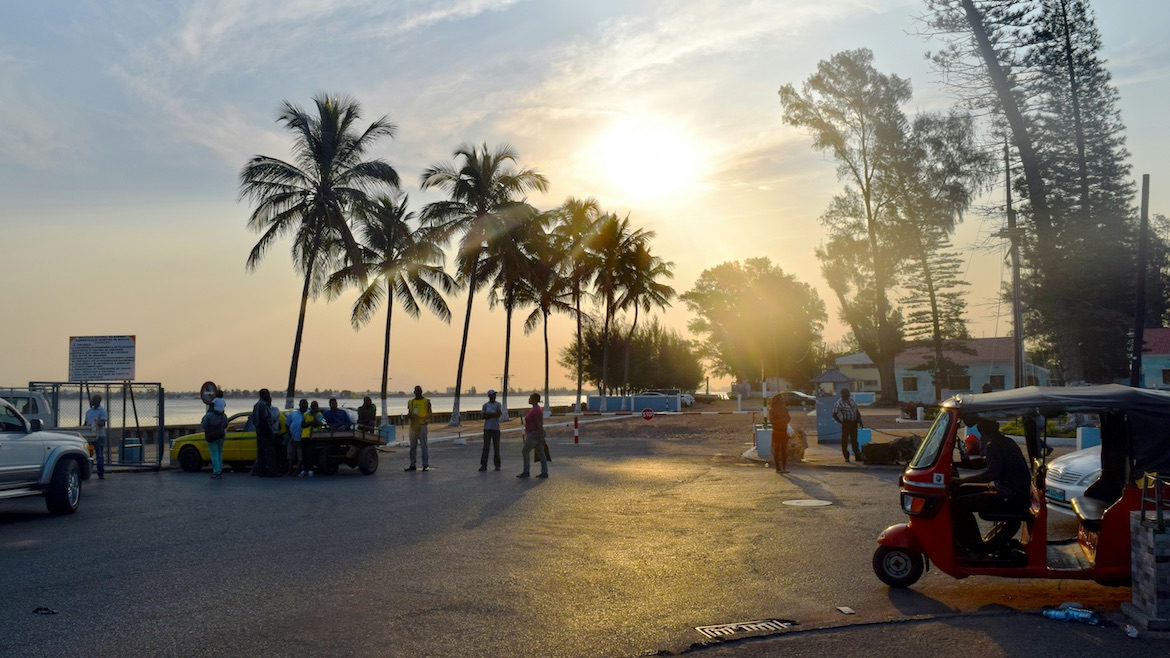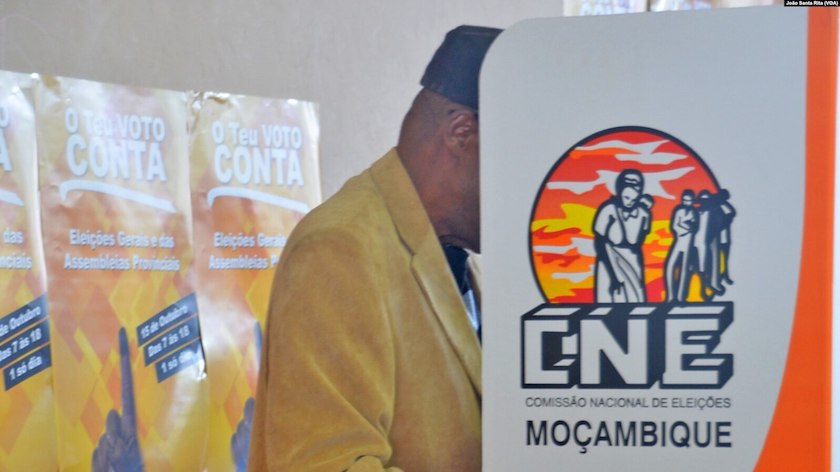The southeast African country held its seventh elections. A missionary and a pastor address the challenges of an increasingly dissatisfied population. While jihadism grows stronger in the north, churches are growing in the south.
 A section of Maputo's promenade. / Photo: [link]Omoniyi David[/link], Unsplash.
A section of Maputo's promenade. / Photo: [link]Omoniyi David[/link], Unsplash.
All indications are that FRELIMO will continue to rule Mozambique for another five years. This is the ruling party, created by communist guerrillas at the end of Portuguese colonisation, today a social democratic party.
This is the winner, at least, according to the preliminary results made public national vote on 9 October.
In the opposition, the RENAMO party (another party forged by a guerrilla in the independence process) lost its second place to the newer Optimistic Party for Mozambique's Development (known in the country as Podemos).

[photo_footer]RENAMO candidate Ossufo Momade voting in the last local elections / Alfredo Jr, VOA, Wikimedia Commons[/photo_footer].
Already in the first hours after the end of voting, the opposition began to speak of fraud. The electoral commission confirmed that some polling stations had delayed their opening hours, and that in some districts in the regions of Cabo Delgado and Zambezia it had not been possible to vote due to a lack of ballots.
Two weeks after the election, the protests are growing in certain areas of the country.
The European Union observation mission confirmed that “there was a notable lack of confidence in the reliability of the electoral register and the independence of the electoral bodies. In addition, our observers reported a slow counting process that suffered from disorganisation and lack of clarity”.
An evangelical missionary based in Mozambique who preferred to remain anonymous said last year’s municipal elections also saw such accusations of fraud. “All this seems to have generated disenchantment, disillusionment and despair” because many would like to see a change in power but the ruling party continues to win elections “no matter what”, she told Protestante Digital.
“In the cities is where people suffer the most from this, as there is a higher cultural level and people demand better health care, better education, etc (…) It is in the cities that the opposition is taking shape, but right now it is very difficult for it to win”, she says.
Meanwhile, “in rural areas they talk more about stability, i.e. that there should be no war. There, FRELIMO is the image of someone who cares for the stability of the country”.

[photo_footer]A man votes in one of the facilities set up by the National Electoral Commission / Joao Santa Rita, VOA, Wikimedia Commons[/photo_footer].
For the Mozambican Network of Human Rights Defenders, the delays in the opening of some centres, the lack of materials and the disappearance of voters from the lists are “a premeditated situation to sabotage the electoral process, eliminating from the register the names of citizens who are not supporters of the current government”.
The situation in Mozambique has worsened in recent years. “The situation is generally calm but not easy. Families are desperately trying to take care of themselves”, says Sérgio Mundlhovo, an evangelical pastor in a rural town in the south of the country.
The situation has become “critical” in Beira, one of the country’s most important cities, which was 90 per cent devastated by a cyclone. Indeed, there, the evangelical community has so far been involved in recovery efforts. But the difficulty has spread to the rest of the territory as well.
“People say that there has been a worsening of the situation in the country in recent years”, the missionary stresses. “This is noticeable in the fact that there are many people without jobs. If in Europe they count the number of unemployed, here they count the number of employed people”. In addition, for many people who have jobs, the income is not enough to live on either. “Poverty levels seem to be getting higher and higher”.
Mozambique ranks tenth from the bottom in the Human Development Index (HDI) with a life expectancy of less than 60 years and a GDP per capita of 1,200 dollars a year.
According to the most recent data published by the Mozambican National Institute of Statistics, which is from 2022, 18.4% of the population is unemployed, reaching 31% of people living in urban areas. Three in ten Mozambicans have never been to school.
“Prayer is needed for the economic situation in the country”, the pastor says. “Poverty is extreme and widespread, and the level of education, especially in rural areas, is very low”.
It has been seven years since the jihadist insurgency broke out in northern Mozambique, in the Cabo Delgado region. This came as a surprise in a country with a Christian majority and in a region of the African continent where such phenomena are not usually seen.
The Al-Shabaab group (which is distinct from the jihadist grouping operating in Somalia with the same name) has caused truly terrifying scenes, killing civilians in its confrontation with the army, and even taking control of entire towns. Moreover, since 2018, the self-proclaimed Islamic State (IS) also claims to be present in the conflict.
“The conflict in Cabo Delgado is something very peculiar”, says the missionary. Both she and Pastor Mundlhovo highlight the lack of information that the Mozambican population itself suffers from in this regard. “I can’t say much about the situation of the jihadist conflict in the north. In the last few days, the tension has been low and there is not much information”, admits the pastor.
“In the area where I am, when you ask people, they don’t answer”, says the missionary. “I don’t know if it’s because they don’t know about the conflict, or out of fear. What they tell you is that the north is the richest part of the country in terms of resources, and yet it is the region where people live in the greatest poverty and misery. But they don’t analyse what is going on. It’s also true that they came out of a civil war relatively recently and this marks them in their behaviour, so another armed conflict is not something they want to hear about”, she explains.
According to Joshua Project data, the Mozambican population defines itself mainly as Christian (49.5%), of which 14.18% are evangelicals, although ethnic religions (28.9%) and Islam (19%) also play an important role. The recent influence of communism on the country’s independence has also generated a smaller “non-religious” sector (3.3%).
From the south, the evangelical missionary confirms that “the situation for Christians is calm and good”. “There is religious freedom. This is a believing country, in different ways and things, but everyone is religious. Catholics and evangelicals live together, there are Muslims and then what we would call cults. I know that in the northern region the situation might be different”, she adds.
Pastor Mundlhovo also believes that, “in Mozambique, Christians are on good terms”, explaining that “the gospel is growing and that the established evangelical churches are in good health and are also growing”. However, he points out that “the big challenge for Christians is the misleading theological trends that are spreading in the country, such as the so-called ‘prosperity gospel’”.
Transformation, growth and provision. These are the three reasons for prayer that both the missionary and pastor Mundlhovo repeat when asked how Christians elsewhere can pray for the situation in Mozambique. “Perhaps the main reason to pray for the country would be for deep spiritual growth, because there are a lot of charismatic and prosperity theology movements that easily capture people”, the pastor explains.
“Pray for committed leadership and also for resources so that churches can sustain people who are called to full-time ministry. Pray that God will open up financial opportunities and enable brothers and sisters to preach the gospel”, Mundlhovo remarks.
The missionary highlights two areas of prayer. The first is at the general level. “The population is very brave, very hard-working, hard-fighting people, but they have a whole ethical worldview that has yet to be built because it has barely been 40 years since the country’s independence. It is as if many here had no history. When you come out of hundreds of years of slavery, and you come out of two wars, one for independence and one civil war, you don’t have time to grow as a people or to build as a collective. So, you can pray for the building up of the people, in this sense. Pray that the Mozambican people are able to build a mature democracy”, she says.
On a more individual level, and as everywhere else, the missionary points out, “we have to pray for God to transform hearts”.
“Misery can bring out the worst in us because it is about survival. Only people who are transformed, pacified, full of hope and who know their value before the Lord can transform their reality”, she concludes.
[analysis]
[title]One more year[/title]
[photo][/photo]
[text]At Evangelical Focus, we have a sustainability challenge ahead. We invite you to join those across Europe and beyond who are committed with our mission. Together, we will ensure the continuity of Evangelical Focus and Protestante Digital (Spanish) in 2024.
Learn all about our #OneMoreYearEF campaign here (English).
[/text][/analysis]

Las opiniones vertidas por nuestros colaboradores se realizan a nivel personal, pudiendo coincidir o no con la postura de la dirección de Protestante Digital.
Si quieres comentar o